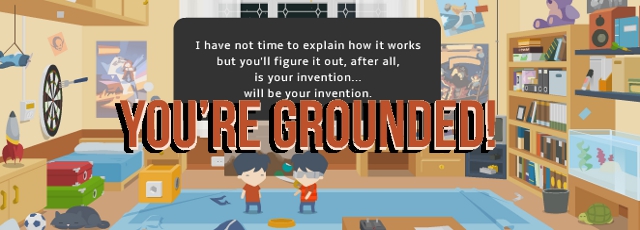

If you don’t find out her reason, you can’t prevent a recurrence. You may not consider it a good reason, but to her it’s a reason. To do that, remember that your child has a reason for what she did. The only way to actually “teach a lesson” is to create a safe conversation. If your child is worried about you getting upset at her, she’ll move into “fight, flight or freeze” and learning will shut down. So just tell him you need some time to think and get calm before you talk about what happened. Without that sense of safety, your child’s heart is hardened to you - because he expects judgment and punishment - and you have no influence at all. Once your child knows you’re on his side, he feels safe to engage with you. You also want to teach that everyone makes mistakes, and your child has the power and courage to make amends. The lesson you want to teach, I assume, is that your child can make a better choice next time.

Grounding your child, removing privileges, punishing with extra chores - all of these approaches are meant to “teach a lesson.” But research shows that kids get preoccupied with the unfairness of the punishment, instead of feeling remorse for what they did wrong. Children of any age, including teenagers, respond to that connection by being more open to your guidance. Empathy creates a connection with your child. Laura - Could you write about transitioning to positive discipline for parents of older kids? If I start Empathic Parenting now with my kids 12 and 9, will it still help? How do I all of a sudden “remove” punishment? My 9 year old always says ‘Oh now I guess I am grounded.’ How do I change his thinking?” Sometimes leaning back on the harsh punishments and going with empathy has a greater and more impactful result. This piece helps us understand that Empathy creates a connection with your child. Here she discusses 10 Things To Do Instead of Grounding Your Kid. I came across this piece on Psychology Today, from Laura Markham, Ph.D., the author of Peaceful Parent and Happy Kids. Ultimately, we all want to teach the child to make a better choice next time we also want to teach that everyone makes mistakes and that the child has the power and courage to make amends.Īs parents, we need to start by practising what we preach, empathy. Some punishments are just not commensurate to the crime and we should be able to strike a balance by asking ourselves a lesson we want to teach. As parents, it is important to draw the line between discipline and being mean. While discipline is a very important factor in raising a child, we should also make room for Empathic Parenting. Many parents today use the words “You’re Grounded”, and do not follow through with the enforcement, others may enforce partially, while some grossly overdo it. However, Grounding can backfire if the type and duration of restrictions are too severe relative to the behaviour meant to be corrected or if the restrictions are too difficult for the parent to enforce. This form of punishment has been suggested as an alternative to physical discipline or spanking for behaviour management in the home. One is also said to be grounded when certain privileges, freedom and/or activities are removed such as playing video games, watching TV, extracurricular activities etc. In general terms, Grounding refers to a common form of discipline used, in which a child, teen, or adult is not allowed to leave their home or bedroom except for required/permitted activities such as school, church etc.


The word Grounding originated as a term in aviation, often used when a pilot is prevented from flying an aircraft due to misconduct, illness, technical problems with the aircraft, or other reasons. The South America-Africa-Middle-Asia Women Summit (SAMEAWS).Africa’s Top 25 Distinguished Women in Business Excellence 2017.


 0 kommentar(er)
0 kommentar(er)
